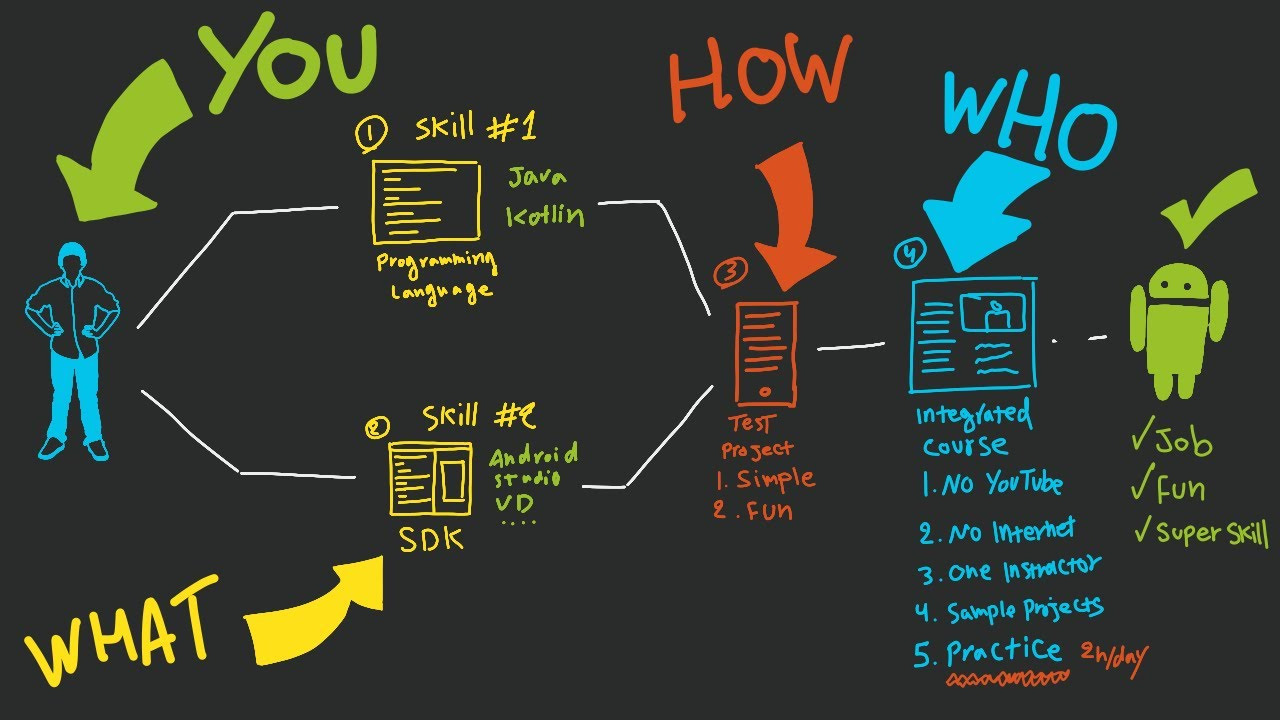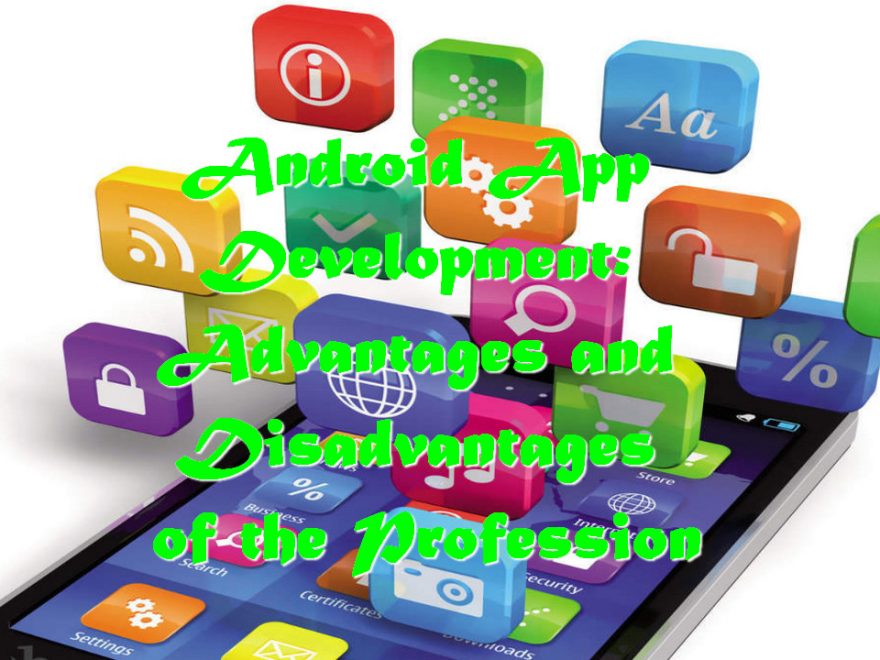Mobile app development for Android is trending in the job market. The Google Play Store releases about 3,000 new products every day! And this is a good reason to master the skills of a developer on a popular platform. Employment in this specialization is guaranteed, without a doubt. To be sure, look at the section with orders for this direction on LinkedIn.
And although the age of Android has been a dozen years, most devices continue to work on the well-known system. And the demand for developer services is still stable. But is everything so rosy in this profession? Is it worth mastering it to create an app that brings pictures to life, and what disadvantages are present in it? Let’s find out.
Developing for Android: what do you need to know?

Profile knowledge is extremely important in this specialization. Even if you are a novice developer, you will have to learn a lot additionally. A rough list of what you need to know looks like this:
Programming languages – Java and Kotlin. Many people limit themselves to the former, but the latter is also necessary. Google, for example, designates it as the first choice when it comes to developing applications for Android. And it is important to own the latest version of the language, as well as its syntax.
The structured markup language XML. It is used to create layouts in applications. It is somewhat similar to the familiar HTML but has certain differences.
The development environment – Android Studio. It is officially supported by the IDE, so it is definitely worth mastering. This is the basis on which all the new guides are built.
Databases. You need to know how they are structured and work because if your application processes large amounts of information, you cannot do anything without such platforms.
UX/UI design. The fight for users’ attention takes place in any web product. And in applications, an intuitive and attractive interface is also important.
You can learn the necessary skills by attending courses for developers. Also, if you have higher education in the field of programming, you can try to learn the specialty yourself. There are enough materials on the Internet on the subject.
In addition to technical knowledge, it is important to constantly be aware of the latest market trends and user preferences. This helps to determine the functionality of the future product.
It is also important to have critical thinking. It allows maneuvering at every stage and promptly checking all possible points to avoid mistakes when writing code.
What are the responsibilities of an Android developer?

The professional responsibilities of a mobile app developer include solving different tasks. These include:
designing products for the OS;
publishing them in stores;
converting designs into high-quality code;
identifying and fixing bugs in the finished product;
code quality support;
working with external data sources and APIs;
improving application performance;
preparing documentation and work instructions.
Requirements for such jobs do not include a college degree. Employers care about skills, abilities, and experience in mobile programming. A developer certificate from Google will be a good help. It will be easier to find a job with it.
There are often offers of internships in IT companies, which allow you to gain experience and significantly improve your skills. This option is beneficial for newcomers starting to build a career.
Benefits of working in Android device development

Having sorted out the basic skills, it’s time to talk about the attractions of an in-demand IT profession. There are, and there aren’t a few of them. The first thing worth remembering is the market share of the Android operating system. According to the latest data, about 84% of mobile devices run on it. That’s about 2 billion users who need different applications. And you can create them, ensuring a decent existence for yourself.
Another big advantage is the low development cost. First, the company makes its SDK available absolutely free of charge. Secondly, you can write code for this platform on any OS. Such small costs promise high profitability for a future project.
The next advantage is that most of the Android code is open. This allows you to quickly adjust, fix, integrate, improve and update the application without too much difficulty. The code itself isn’t very complex, so it’s easy for specialists to figure it out if they need to.
It takes just a few hours to post a newly created app to the store, and it only costs $25 in the Play Market. By comparison, in the AppStore, it’s $100 annually, and after publishing a product there, you’ll have to wait about a week until it’s available for download.

